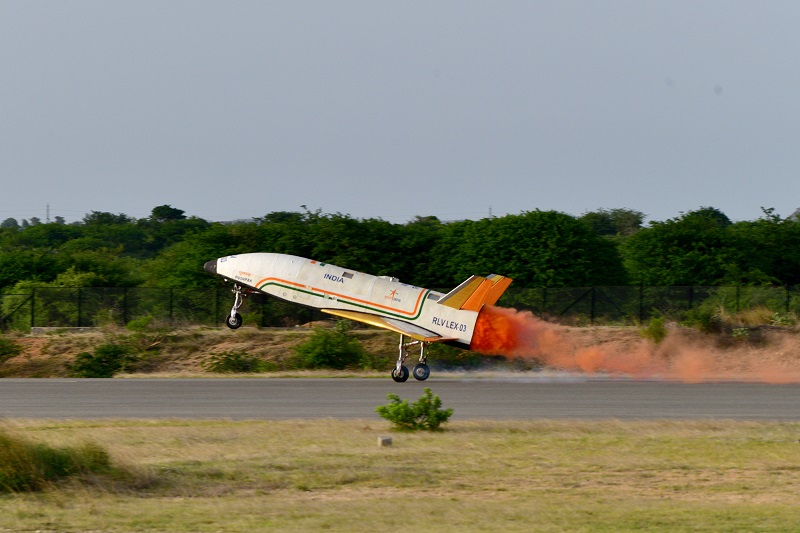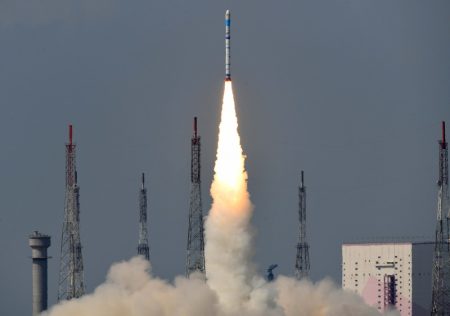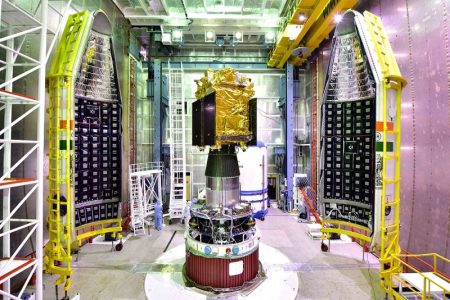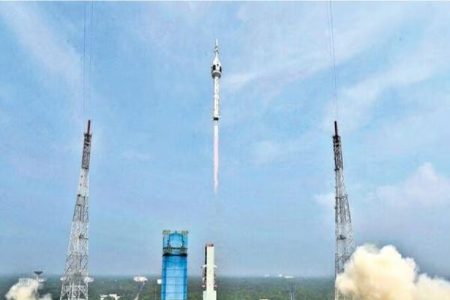
The Indian Space Research Organisation (ISRO) marked a significant milestone on June 23, 2024, by achieving its third consecutive success in the Reusable Launch Vehicle (RLV) Landing Experiment (LEX). This final test, designated LEX-03, was conducted at the Aeronautical Test Range (ATR) in Chitradurga, Karnataka, at 07:10 IST.
Following the successes of the RLV LEX-01 and LEX-02 missions, RLV LEX-03 demonstrated the autonomous landing capability of the RLV under more challenging conditions. This mission tested the vehicle’s performance with a cross range of 500 meters, compared to the 150 meters achieved in LEX-02, and under harsher wind conditions. The winged vehicle, named ‘Pushpak,’ was released from an Indian Air Force Chinook Helicopter at an altitude of 4.5 kilometers. Pushpak autonomously executed cross-range correction maneuvers and approached the runway, performing a precise horizontal landing. The landing velocity exceeded 320 km/h, surpassing the typical 260 km/h for commercial aircraft and 280 km/h for fighter jets. After touchdown, Pushpak’s speed was reduced to nearly 100 km/h using its brake parachute, followed by landing gear brakes. During the ground roll phase, Pushpak maintained stability using its rudder and nose wheel steering system.
This mission simulated the approach and landing conditions of a vehicle returning from space, affirming ISRO’s expertise in the critical technologies necessary for developing a Reusable Launch Vehicle (RLV). The algorithms for correcting longitudinal and lateral errors, crucial for future orbital re-entry missions, were successfully validated for their advanced guidance capabilities. The RLV-LEX used multisensor fusion technology, including an Inertial sensor, Radar altimeter, Flush air data system, Pseudolite system, and NavIC. Notably, the winged body and flight systems from the LEX-02 mission were reused without any modifications, showcasing ISRO’s robust design capabilities.
The mission, led by VSSC, was a collaborative effort involving multiple ISRO centers and significant support from the Indian Air Force, Aeronautical Development Establishment (ADE), and other key partners. ISRO Chairman Shri S Somanath congratulated the team for their consistent success in these complex missions, while Dr. S Unnikrishnan Nair, Director of VSSC, emphasized that this success boosts confidence in the critical technologies required for future orbital re-entry missions.









